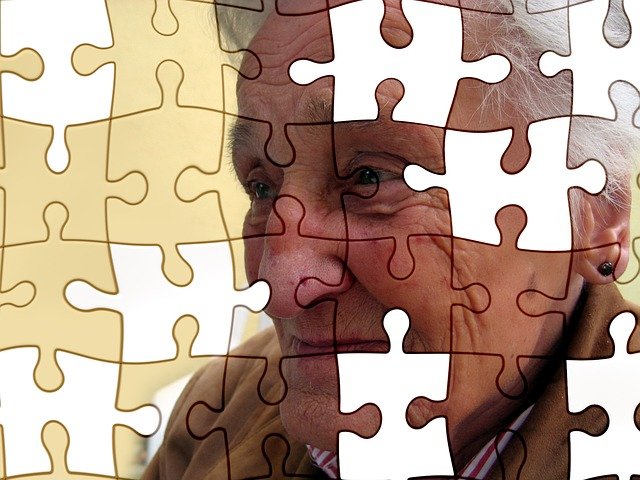
Older persons display flexibility in behavior and attitudes and the ability to grow intellectually and emotionally. Externally imposed demands upon one’s time may diminish which leaves plenty of time to embark upon new social, psychological, educational, and recreational pathways. Retirement during retirement, many older adults feel liberated and their courage, and confidence are enhanced. It is important to remember that some will fare poorly. Risk factors include individuals who typically do not want to retire, who are compelled to retire because of poor health, or who experience a significant decline in their standard of living.
Losses with aging include:
~ Social status
~ Self-esteem
~ Physical capacities
~ Death of friends and loved ones
Older adults are encumbered by many of the same mental disorders as are other adults; however, the prevalence, nature, and course of each disorder may be very different. Many older individuals present with somatic (physical) complaints which amplify physical symptoms, distracting patients’ and providers’ attention from the underlying depression or anxiety. Additionally, many older patients may deny psychological symptoms
The large unmet need for treatment of older adults reflects
~ Patient barriers (e.g., Underdiagnosis in primary care, tendency to emphasize somatic problems, reluctance to disclose psychological symptoms)
~ Provider barriers (e.g. Lack of awareness of the manifestations of mental disorders, complexity of treatment, and reluctance to inform patients of a diagnosis)
~ Mental health delivery system barriers (e.g., Time pressures, reimbursement policies, agiencies which are not equipped to take medicare)
~ Stereotypes about normal aging which make diagnosis and assessment of mental disorders in late life challenging. For example, many people believe that “senility” is normal and therefore may delay seeking care for relatives with dementing illnesses
When an older adult starts to show signs of cognitive decline, many assume the worst; however, there are many causes of cognitive impairment besides Alzheimers. Mild cognitive impairment is not unusual and generally does not meet accepted criteria for Alzheimers. Side effects of medications, depression, physical issues such as endocrine problems and even gradual (untreated) physical impairments such as hearing loss can cause an older adult to seem to be having difficulty thinking clearly.
Misuse of alcohol and prescription medications appears to be a more common problem among older adults than abuse of illicit drugs. Benzodiazepine use represents an area of particular concern for older adults given the frequency with which these medications are prescribed at inappropriately high doses
Helping the Person Live Well
~ Encourage physical activities. Based on results of some studies, exercise or regular physical activity may play a role in living better, improving mood and slowing cognitive decline.
~ Prepare meals that maintain a balanced diet and are low in fat and high in vegetables.
~ Create a daily routine which promotes quality sleep and engagement with others.
~ Identify situations which may be too stressful for the person with dementia.
~ Work together to find what helps the person relax
~ Help the person with tasks such as: Keeping appointments, remembering words or names, managing money, keeping track of medications and transportation
~ Use a calm voice when responding to repeated questions.
~ Respond to the emotion, instead of the specific question; the person may simply need reassurance.
~ If you notice changes, check with the doctor to rule out other physical problems or medication side effects.
Overview of Treatment
Physiological changes may occur in the absorption, distribution, metabolism, and excretion of psychotropic medications, This means older adults have an increased vulnerability to side effects, such as tardive dyskinesia. Additionally, since many older adults are on multiple medications, interactions and side effects must always be considered. It is also important to help caregivers and older adults address barriers to treatment compliance including organizing medications and transportation to and from the doctor.
In general, pharmacological treatment of depression in older people is similar to that in other adults, but the selection of medications is more complex because of side effects and interactions with other medications for concomitant somatic disorders. 60 to 80 percent of older patients with moderate to severe unipolar depression can be expected to respond well to antidepressant treatment. In terms of therapy, cognitive behavioral and problem solving therapy both seem to be effective. Cognitive-behavioral therapy is designed to modify thought patterns, improve skills, and alter the emotional states that contribute to the onset, or perpetuation, of mental disorders. Problem-solving therapy postulates through improving problem-solving skills, older patients are able to cope with stressors and thereby experience fewer symptoms of psychopathology
Summary
~ Normal aging is a gradual process that ushers in some physical decline, such as decreased sensory abilities (e.g., vision and hearing) and decreased pulmonary and immune function
~ Decline in cognitive capacity with aging is partly preventable
~ Older persons display flexibility in behavior and attitudes and the ability to grow intellectually and emotionally
~ Losses with aging include Social status, self-esteem, physical capacities, death of friends and loved ones
~ Anxiety disorders are the most prevalent mental health disorders in older adults
~ There are many causes of cognitive impairment besides Alzheimers.
~ Mild cognitive impairment is not unusual and generally does not meet accepted criteria for Alzheimers Schizophrenia in Late Life
When working with older adults:
~ Focus on the person's strengths and how they can remain as independent as possible
~ Encourage quality sleep, daily routines and proper nutrition
~ Use cognitive behavioral and problem solving therapies to address mood and independence issues.
~ Remember that day treatment/drop in centers are available throughout the country for respite care as well as to facilitate interaction and allow caregivers to work. Caregivers will often also have their own emotional, financial and social needs that need to be addressed when caring for a parent or spouse.
View the Counseling CEU course for this presentation.
This course is also included in our unlimited CEU packages.
https://youtu.be/B70iWngLcNs
